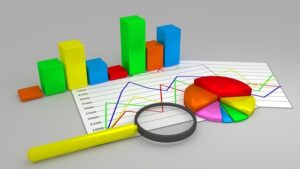Global universities face challenges in harmonizing laboratory reports and scientific data presentation due to regional differences in regulations, terminology, and visualization styles. Researchers must adapt their findings to local standards, requiring careful consideration of cultural nuances and specialized translation services. Standardization through universally accepted conventions is crucial for effective communication, simplifying the review process, and promoting international collaboration in academic research. Accurate translations, facilitated by advanced NLP tools and human expertise, ensure data integrity and confidentiality, fostering trust among institutions worldwide.
In today’s global academic landscape, universities worldwide demand precise translation of laboratory reports and scientific data. This article delves into the intricate process of facilitating international collaboration by bridging linguistic and cultural gaps. We explore key aspects such as understanding diverse university requirements, navigating cross-cultural data interpretation challenges, standardizing scientific communication protocols, leveraging advanced translation tools, and ensuring quality and confidentiality in research documentation.
- Understanding Global University Requirements
- Challenges in Cross-Cultural Data Interpretation
- Standardizing Scientific Communication
- Advanced Tools for Accurate Translation
- Ensuring Quality and Confidentiality in Research
Understanding Global University Requirements
Universities around the globe operate within diverse regulatory frameworks, each with its own standards and expectations regarding laboratory reports and scientific data presentation. For researchers aiming to collaborate internationally or publish in prestigious global journals, understanding these varying requirements is paramount. This involves deciphering not just the language of science but also the linguistic nuances and formatting preferences specific to each region.
Institutions often have distinct guidelines for document structure, terminology use, and data visualization, reflecting cultural differences and local practices. For instance, what is considered a comprehensive and acceptable report in one country might differ significantly from another’s expectations. Researchers must be adept at translating their findings into formats that align with these global university requirements, ensuring clarity, consistency, and compliance across borders.
Challenges in Cross-Cultural Data Interpretation
The interpretation of laboratory reports and scientific data across different cultural contexts presents unique challenges. With universities globally collaborating on research, ensuring consistent and accurate understanding is essential for meaningful knowledge exchange. One significant hurdle is language translation, which goes beyond mere word-for-word substitution. Scientific terminology often has nuanced meanings in various languages, requiring specialized translators familiar with both the source and target scientific fields to convey concepts precisely.
Additionally, cultural differences in data presentation and reporting styles can lead to discrepancies. What is considered a standard format in one country might vary widely from another, impacting how data is organized, presented, and interpreted. Contextualizing technical information appropriately while respecting cultural norms is crucial to avoid misinterpretations that could hinder progress in global scientific endeavors.
Standardizing Scientific Communication
In today’s global academic landscape, effective communication is key to fostering collaboration and advancing scientific knowledge. Standardizing the way laboratory reports and scientific data are presented is an essential step in achieving this. Universities worldwide face challenges when dealing with research conducted in diverse languages and formats, hindering seamless sharing and understanding of critical information.
Standardization ensures consistency across institutions, making it easier for researchers to interpret and build upon one another’s work. It involves adopting universally accepted conventions for writing laboratory reports and presenting scientific data, such as using consistent units of measurement, following specific formatting guidelines, and employing standardized terminology. This not only simplifies the review process but also enhances the accessibility and comparability of research outcomes, ultimately revolutionizing global scientific communication.
Advanced Tools for Accurate Translation
In the realm of global academic collaboration, accurate translation of laboratory reports and scientific data is paramount. Modern tools leverage advanced natural language processing (NLP) algorithms to ensure precise and contextually relevant translations. These technologies not only facilitate communication between researchers from diverse linguistic backgrounds but also enable seamless sharing of critical information, fostering international partnerships and accelerating scientific progress.
Specialized translation platforms now incorporate machine learning models trained on vast datasets of scientific literature, allowing them to capture complex terminology and specialized jargon specific to various disciplines. Additionally, human translators with domain expertise play a crucial role in quality assurance, refining machine-generated translations for grammatical correctness and ensuring conceptual clarity. This hybrid approach leverages the strengths of both automation and human intelligence, ultimately enhancing the accuracy and reliability of laboratory reports and scientific data translation.
Ensuring Quality and Confidentiality in Research
In the realm of global academic research, the seamless translation of laboratory reports and scientific data is paramount to fostering international collaboration and knowledge exchange. When handling such sensitive information, ensuring quality and maintaining confidentiality are non-negotiable aspects. Accurate translation requires a deep understanding of specialized terminology and methodologies across diverse scientific disciplines. Professional translators with expertise in this field employ meticulous processes to preserve the integrity of original findings, ensuring that translated documents accurately reflect the research conducted.
Confidentiality is equally critical. Universities entrust their researchers with valuable data, often containing proprietary information or personal details. Reputable translation services adhere to strict privacy protocols, employing secure systems and signed non-disclosure agreements to safeguard this sensitive material. This commitment to confidentiality builds trust between academic institutions worldwide, encouraging the open sharing of research outcomes that drive scientific progress.
Global universities face a complex task when it comes to understanding and utilizing laboratory reports and scientific data from diverse sources. Overcoming challenges in cross-cultural interpretation is essential for standardized scientific communication. By leveraging advanced translation tools, ensuring quality, and maintaining confidentiality, researchers can foster international collaboration and accelerate scientific progress. Standardizing these processes enables seamless sharing of knowledge, ultimately enriching the global research landscape.
